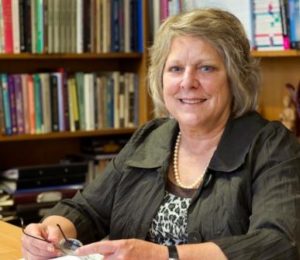 What are the major challenges in South Australia to break down barriers to the role of the aged caused by the conventional belief that they pose a burden?
What are the major challenges in South Australia to break down barriers to the role of the aged caused by the conventional belief that they pose a burden?
This is one of the fundamental questions that will be addressed at tomorrow’s panel discussion, South Australia’s Population: challenges and opportunities, the third and final event in the Population Matters series presented by the Australian Population Association (APA) in collaboration with the Applied Population Studies Programme in Flinders University’s School of the Environment.
Matthew Flinders Distinguished Professor Mary Luszcz (pictured), Professor of Psychology and Gerontology and Director, Flinders Centre for Ageing Studies, will be joined on the panel by Michael Hickinbotham, SA Economic Development Board member, and Professor Graeme Hugo, Director of the Australian Population and Migration Research Centre at the University of Adelaide.
Professor Luszcz said that beyond the failure to distinguish between ‘the aged’ and ‘ageing’ as a process, ageism and attitudes to towards older people remain the biggest barriers to the understanding and acceptance of our society’s most senior members.
“One of the great paradoxes of ageism is that, unlike sexism and racism, it ultimately affects all of us,” Professor Luszcz said.
“And despite the best efforts of older people themselves, gerontologists and advocacy organisations for older people, such as the COTA (Council on the Ageing), working to overcome it, ageism is still the most socially-condoned and institutionalised form of prejudice in the world,” she said.
There is a need to view growing older as an individual and dynamic process that could potentially extend over 30 or more years, Professor Luszcz said, from the ‘young old’ to ‘old old’ or Third Age, to the ‘oldest old’ or the Fourth Age.
“Ageing is not all ‘bad news’. More people are living longer, successfully. People in the Third Age, in particular, have a latent potential for better mental and physical fitness,” she said.
“And later cohorts seem to be gaining in physical and mental fitness, with high emotional and personal well-being. They’re also developing effective strategies to master the gains and losses of late life.”
Flinders University Applied Population Studies Program Director, Dr Udoy Saikia, who is also Vice-President of the APA, said the Population Matters series aims to promote community awareness about population and its impact on development, health and the environment.
“The size, structure and development of human populations interact with and influence a range of broader social issues including fertility, mortality, migration, ageing and distribution,” Dr Saikia, who coordinated the seminar series, said.
“Flinders Applied Population Studies Program has kept abreast with the many developments in the field through teaching and research, and we are now taking a leadership role by collaborating with the APA to address crucial issues concerning Australia’s changing population dynamics,” he said.

